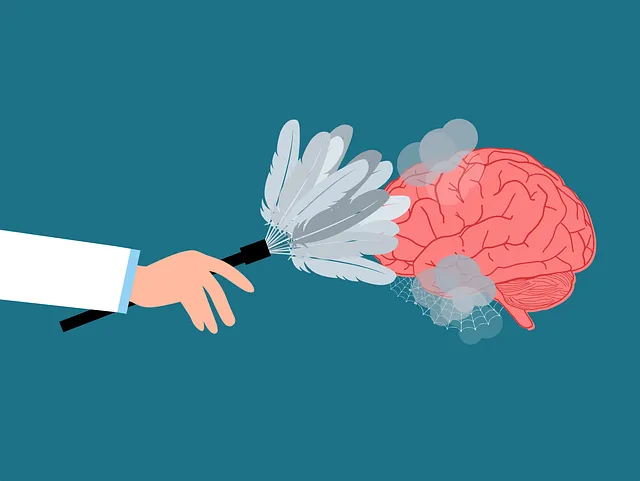Burnout among healthcare providers is a growing concern, but early recognition of signs like fatigue, irritability, and changes in sleep or appetite can prevent crises. The Kaiser Permanente mental health department in Boulder encourages professionals to assess their well-being regularly. They offer tailored resources such as Compassion Cultivation Practices, stress management workshops, individual therapy, and culturally sensitive care. Regular training and risk assessments help identify burnout issues early. Flexible work arrangements and mental wellness coaching programs further support healthcare workers' well-being and resilience. For more information on accessing these services, call the Kaiser Permanente mental health department phone number in Boulder.
Healthcare provider burnout is a growing concern, impacting both patient care and well-being. This article explores effective strategies to prevent burnout among healthcare workers, focusing on early detection signs, mental health support, and sustainable work practices. For those in Boulder seeking help, the Kaiser Permanente mental health department’s resources are detailed, including their phone number (check their official site for this). By implementing these measures, healthcare organizations can foster a healthier and more resilient workforce.
- Recognizing Burnout Signs: Early Detection for Healthcare Workers
- Mental Health Support and Resources: A Comprehensive Guide for Kaiser Permanente Boulder
- Sustainable Work Practices: Strategies to Reduce Burnout and Enhance Well-being
Recognizing Burnout Signs: Early Detection for Healthcare Workers

Burnout is a growing concern among healthcare providers, but recognizing its signs early can make all the difference in preventing a full-blown crisis. Many medical professionals may display subtle indicators that they are struggling with stress and exhaustion. These signs can include persistent fatigue, increased irritability or cynicism towards patients, reduced performance at work, and changes in sleep patterns or appetite. At Kaiser Permanente’s mental health department in Boulder, healthcare workers are encouraged to be vigilant about their well-being by regularly assessing these symptoms.
Early detection is key to implementing effective burnout prevention strategies, such as Compassion Cultivation Practices, which have been shown to reduce stress and enhance job satisfaction. Additionally, addressing underlying mental health issues like depression through preventive measures and access to resources, including the Kaiser Permanente support line, can create a healthier work environment. Mental Health Policy Analysis and Advocacy also plays a crucial role in ensuring healthcare providers have the necessary tools and policies in place to combat burnout.
Mental Health Support and Resources: A Comprehensive Guide for Kaiser Permanente Boulder

At Kaiser Permanente Boulder, mental health support is a cornerstone of our comprehensive healthcare services. We understand that frontline providers, especially in high-pressure environments like ours, face unique challenges and risks for burnout and stress. To combat this, our dedicated mental health department offers a wide range of resources and programs tailored to address these concerns.
From individual therapy sessions with licensed professionals to specialized Stress Management Workshops Organization, we aim to foster a culture of resilience and self-care. Additionally, we prioritize cultural sensitivity in mental healthcare practice, ensuring that our services are inclusive and respectful of diverse backgrounds. Regular training and risk assessments for mental health professionals are implemented to identify potential issues early on, facilitating timely interventions. All these efforts are aimed at not only preventing burnout but also enhancing the overall well-being of Kaiser Permanente Boulder’s dedicated healthcare providers.
Sustainable Work Practices: Strategies to Reduce Burnout and Enhance Well-being

Healthcare providers often face demanding schedules and high-stress environments, leading to burnout and negatively impacting their mental health. To combat this, adopting sustainable work practices is essential. One effective strategy is implementing flexible work arrangements, allowing professionals to balance their personal lives with professional responsibilities. This can include remote work options or adjusted schedules, reducing the strain on providers’ time and energy.
Moreover, integrating mental wellness coaching programs and coping skills development sessions can significantly contribute to burnout prevention. Organizations like Kaiser Permanente’s mental health department in Boulder offer valuable resources, providing support for healthcare workers. These programs focus on individual well-being, teaching effective stress management techniques, resilience building, and healthy coping mechanisms. By prioritizing mental health and offering such initiatives, healthcare providers can enhance their overall resilience and maintain a positive work environment.
Burnout prevention is a collective effort, and by implementing these strategies, healthcare providers in Boulder can create a more sustainable and supportive work environment. Early detection of burnout signs, access to mental health resources like those offered by the Kaiser Permanente Mental Health Department (phone number: [insert number]), and adopting sustainable work practices are key to enhancing well-being. Encouraging open dialogue, fostering a culture of self-care, and providing accessible support systems can help healthcare workers thrive in their careers and deliver exceptional patient care.






